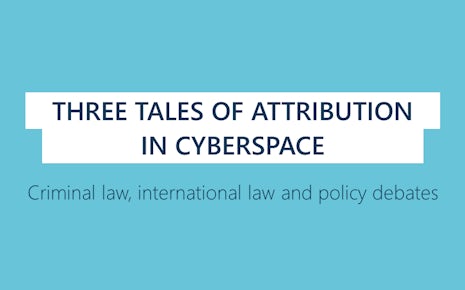Abstract
How prepared are we to manage inter-state competition and conflict in the information era? While we struggle to understand the evolving character of conflict, it is sobering to consider that the technological advances of recent decades might prove to have been triggers for a much faster-moving and more disruptive phase of human history – a phase we are only just entering. The pace and scope of technological change might become exponential, complicating our understanding and management of conflict dynamics by several orders of magnitude. If we are interested in preventing and resolving contemporary conflicts, then it is reasonable to ask whether the principles and practices of preventive diplomacy and conflict management, developed over the past 75 years, might be effective in this evolving technologically-dependent environment. They might be, but it will not be enough simply to declare that prevention is important and to insist that the relevant UN Charter provisions must apply. The principles, ideas, and mechanisms of preventive diplomacy will not survive in the digital environment of the 21st century without intelligent reassessment and very careful nurturing. States need to take a range of complementary steps – technological, normative, political, institutional – in order for prevention to take root.
Key points
- Preventive diplomacy is as valid now as in the past, even if the international environment may currently appear unconducive to its application.
- Preventive diplomacy has always been contingent upon a reasonably settled understanding of conflict and a number of critical factors. These factors include the means and methods, the effects os which might trigger or escalate conflict; time-spatial elements influencing how these means and methods are used; the actors involved; the normative framework against which these uses and their effects are assessed; and the impact on civilians.
- Cyber operations and capabilities play an increasingly central role in contemporary inter-state relations. They reflect additional means and methods used by states outside and within the context of armed conflict to achieve concrete operational or tactical goals within broader geopolitical and strategic objectives. Any preventive effort would need to be closely linked to diplomatic efforts dealing with the broader competition or conflict dynamics within which cyber operations or capabilities are being deployed, not just to the immediate effects of the operation per se.
- Preventive action can include early warning, fact-finding, negotiation, mediation and dialogue facilitation. It also includes applying existing rules and principles of international law, identifying if new norms – whether binding or non-binding – are needed, and establishing mechanisms to build and sustain confidence among states and between states and other relevant actors. These elements of preventive diplomacy are strong and familiar, as are the consequences of not using them when most needed.
- Cyberspace is often described as the ‘wild west’, a ‘frontier zone’, or an ‘ungoverned space’. If these descriptions were accurate then the idea of exercising preventive diplomacy in contemporary inter-state relations would seem to be little more than a far-distant aspiration.
- Fortunately, these descriptions do not hold; cyberspace is neither the digital version of a ‘failed state’ in which no law applies, nor is it terra nullius (available for acquisition by expansionist or predatory powers). Similarly, a states’ decision to develop and deploy cyber operations is governed by etablished rules, principles, practices and customs of international law and inter-state relations. These factors continue to enable the application of preventive diplomacy regardless of the means and methods used by states, whether in peacetime or in conflict.



